“Wasl” Newsletter: Issue 14
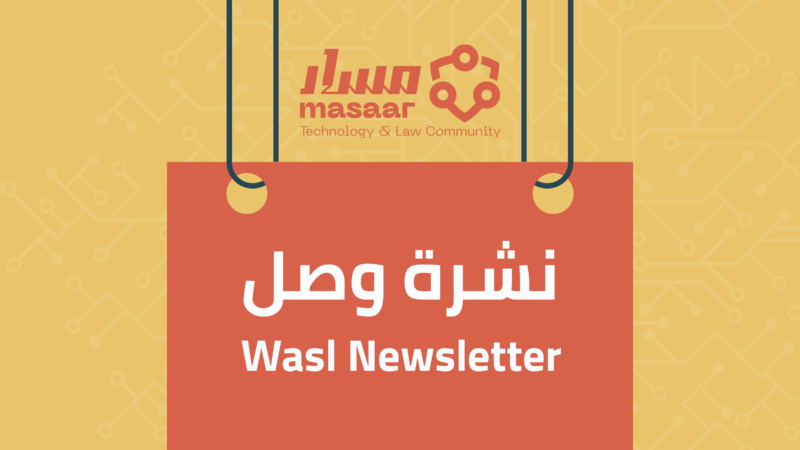
Masaar – Technology And Law Community Activities
Tech and Law
The Historical and Legislative Evolution of Texts Criminalizing the Broadcasting of False News Abroad
This paper examines the history of the crime of ‘broadcasting false news abroad’ to shed light on why its interpretation has become overly broad and lacks a clear definition. It delves into constitutional concerns related to Article (80d) and then showcases recent court cases where posting on social media has been treated as broadcasting false news abroad. English | Arabic
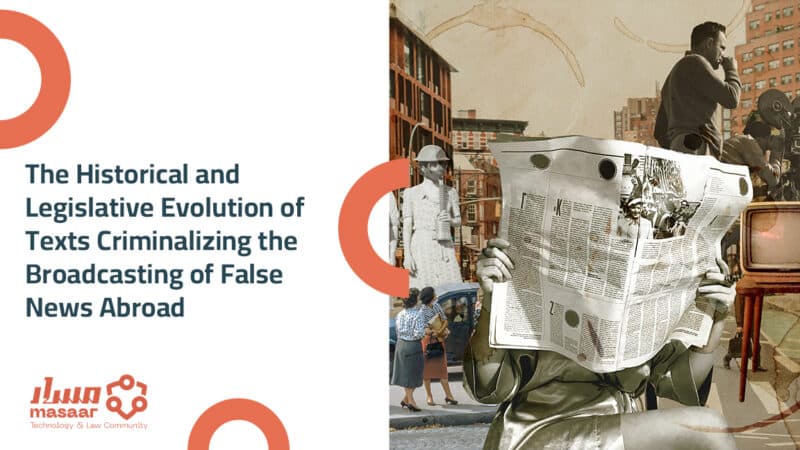
Memorandum of Unconstitutionality of the Crime of Broadcasting False News Abroad (Article 80D of the Penal Code)
This memorandum addresses the alleged unconstitutionality of Article (80d) of the Penal Code, which criminalizes the dissemination of false news abroad. Investigative bodies have recently expanded their interpretation of this article, considering publication on social media platforms and news websites as a form of publication abroad. Arabic
A Study on the Principle of Prohibiting Custodial Sentences in Publication Offenses
This paper examines the Egyptian criminal courts’ disregard for the constitutional principle prohibiting custodial sentences for publication offenses. It analyzes three court rulings where custodial sentences were imposed despite this principle. English | Arabic
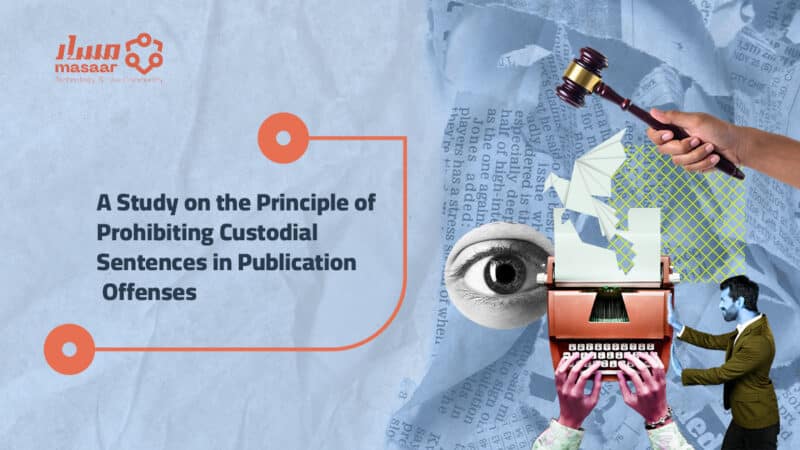
Defense Memorandum – Invalidity of Digital Device Searches under the Cybercrime Law
Masaar has issued a memorandum on the most important defenses related to the inspection or examination of any means of communication, such as mobile phones or computers. These defenses can be used as guidance in investigations and trials related to information technology crimes stipulated in the Cybercrime Law No. 175 of 2018. Arabic
Human Rights and Business
Digital Technology: New Opportunities, Persistent Challenges in Developing and Poor Countries
This paper explores the potential of digital technology to help developing economies catch up with advanced industrial economies. It examines how digital technology can boost economic and social development, but also highlights the challenges these countries face in adopting and using this technology effectively. English | Arabic
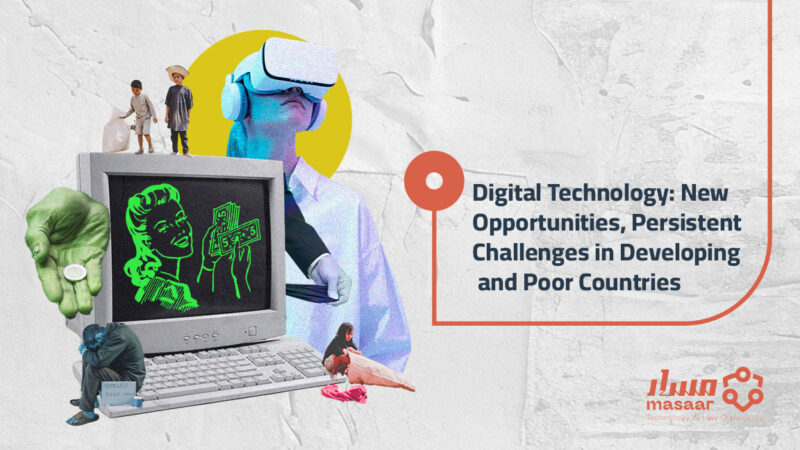
The Future of Smart Cities: Economic and Social Challenges and Opportunities for Development Justice
This paper aims to present a balanced view of Egypt’s smart cities program, discussing it as a strategic option while highlighting its objectives and current vision. The paper also reviews the Egyptian government’s partnerships in this program. It discusses their potential impacts and the most important precautions needed to balance the program’s expected positive outcomes and potential negatives. English | Arabic
Invisible Surveillance: How Does Digital Technology Threaten Workers’ Rights?
This paper examines how digital technology is impacting workers’ rights in the modern workplace. It focuses on three key areas: employment policies, workplace surveillance, and performance appraisal. The paper also outlines essential digital rights for workers, emphasizing fairness, privacy, transparency, and just treatment in the workplace. English | Arabic
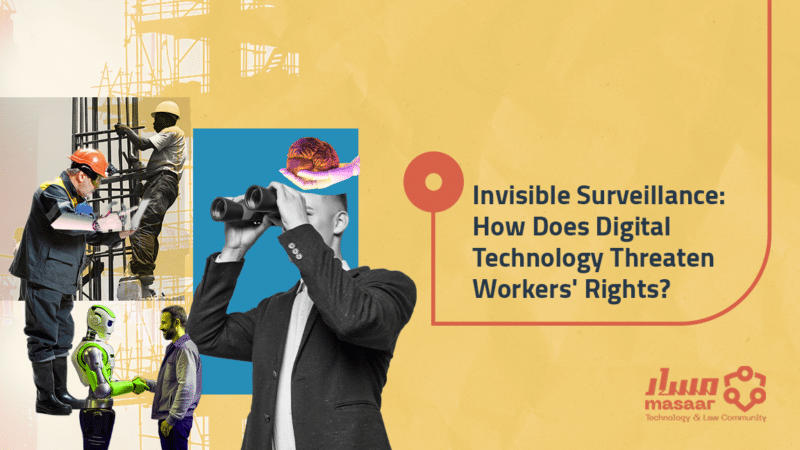
The Right to Access Information: The Impact of Intellectual Property Laws on Freedom of Information
This paper explores the limitations of traditional intellectual property laws in balancing creators’ rights and access to information, especially amid technological advancements. It examines key concepts, digital technology’s impact on knowledge dissemination, and alternative models inspired by open-source collaboration. English | Arabic
Free Internet
Digital Rights: Bridging the Gap Between the Real and Virtual Worlds
This paper provides a theoretical framework for digital rights, exploring their development, core values, and principles. It highlights key rights enabling individual participation in the digital world, especially internet access, and discusses how human rights can be redefined in the digital age. English | Arabic
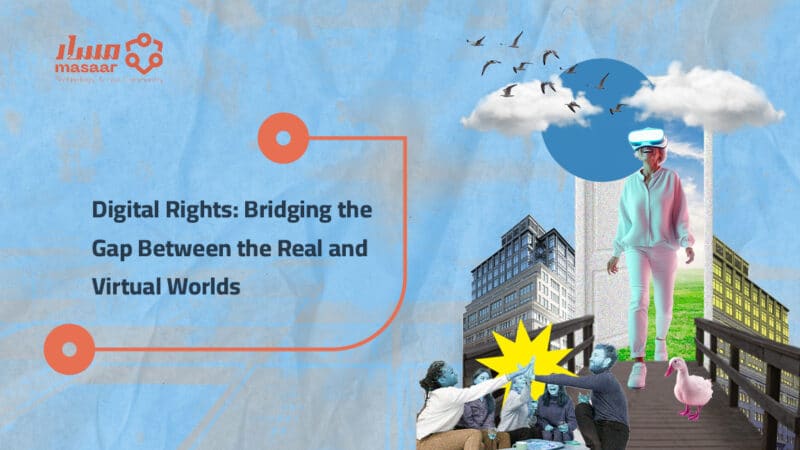
Internet Governance
Digital Technology and Its Impact on Cultural Rights: New Opportunities and Challenges
This paper explores the interplay between digital technology and cultural rights, examining how heritage and cultural production are evolving in the digital world. It analyzes the challenges to protecting these rights and proposes a framework for safeguarding them amid technological advancements. English | Arabic
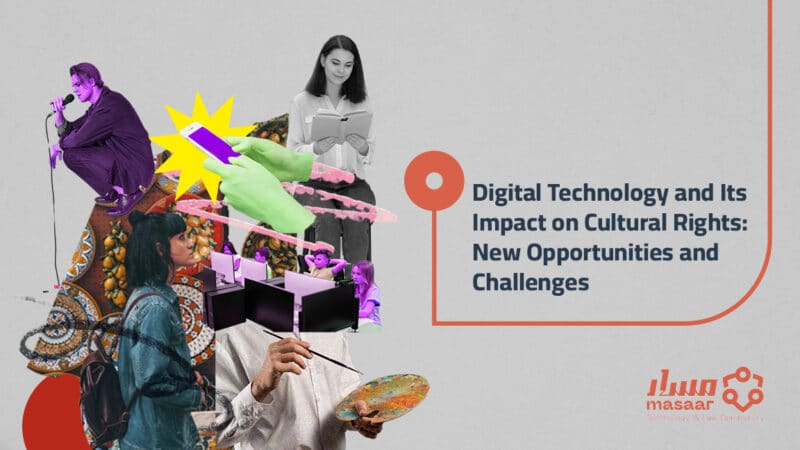
Tech and Equality
Digital Pressures: Challenges Affecting Women’s Mental Health in the Virtual World
This paper discusses the impact of women’s experiences in the digital world on their mental health. It briefly overviews the main gender-based pressures women face in the digital world, their impact on women’s mental health, and ways to address these pressures. English | Arabic
The Absence of Women in Open Source Software: A Challenge to the Principles of Inclusion and Openness
This paper examines the challenges and opportunities of integrating women into the open-source software community. It presents the current state of women’s participation in the open-source community, explores the main barriers to their inclusion, and finally, discusses approaches to promote integration. English | Arabic
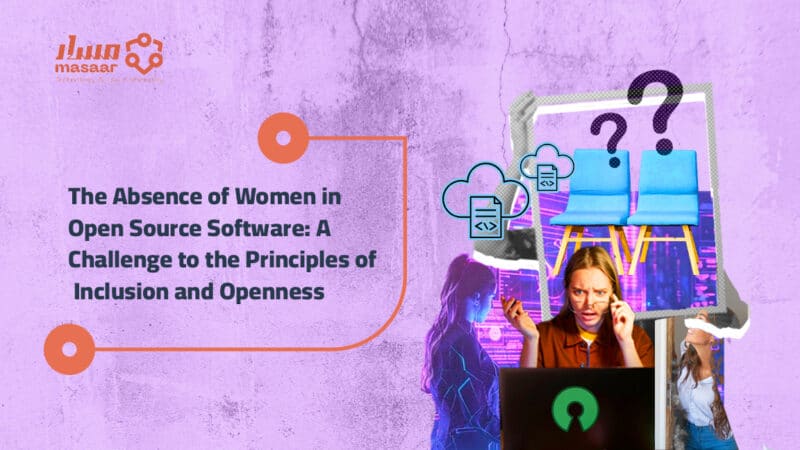
Artificial Intelligence
An Approach to AI Governance: Essential Frameworks for Promoting Justice and Protecting Human Rights
This policy paper addresses the foundational principles necessary for ethical AI governance. It delves into key areas such as non-discrimination, fairness, and inclusivity, emphasizing the importance of designing AI systems that do not perpetuate bias or exclude marginalized communities. English | Arabic
New on “CONNECT” Podcast (Arabic Audio)
- Episode (18): Technology and Poverty: Is Technology the Solution or Part of the Problem?
Find the podcast at Apple Podcasts | Spotify
- Episode (19): Progressive Communication as a Tool to Promote Gender Equality
Find the podcast at Apple Podcasts | Spotify
- Episode (20): The Right to Internet Access as a Fundamental Right
Find the podcast at Apple Podcasts | Spotify

From the Arab Region
SMEX | Manifesto: Towards a Productive and Equitable Telecommunications Sector in Lebanon
This manifesto seeks to introduce a new approach to the telecommunications sector in Lebanon. It addresses the importance of a new telecommunications law that keeps pace with the rapid global developments in this field and promotes transparency, accountability, innovation, and digital security. English | Arabic
7amleh | Hashtag Palestine 2024: The War on Gaza, Digital Rights Violations, and Weaponization of AI
7amleh – The Arab Center for the Advancement of Social Media released its annual report, “Hashtag Palestine 2024,” which highlights the repercussions of the Israeli war on Gaza, that lasted over 15 months, and the systematic violations of Palestinian digital rights. English | Arabic
Access Now | When “cybercrime” laws infringe human rights: lessons from the Arab region
Access Now released a policy paper highlighting the use of cybercrime laws to target human rights defenders, journalists, and voices opposed to the authorities in the Arab region and its impact on digital rights, particularly freedom of expression and the right to privacy. English | Arabic
